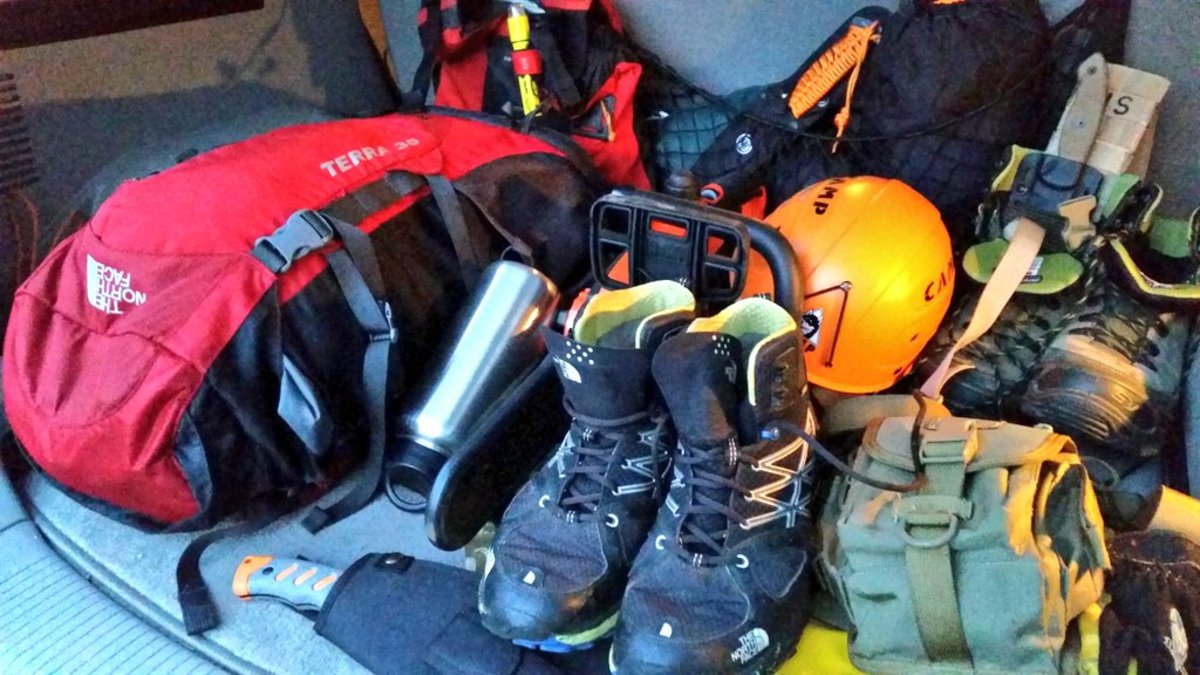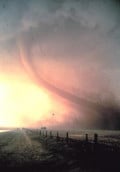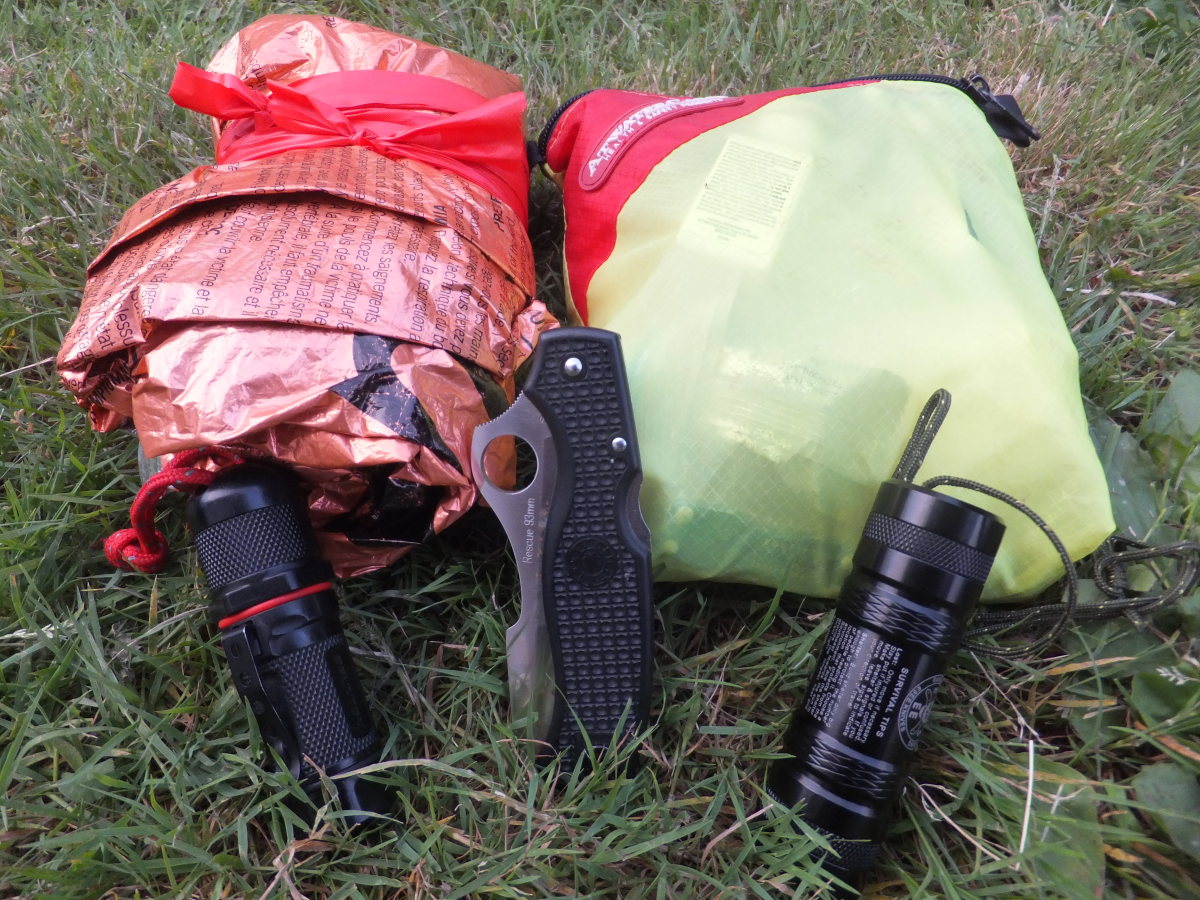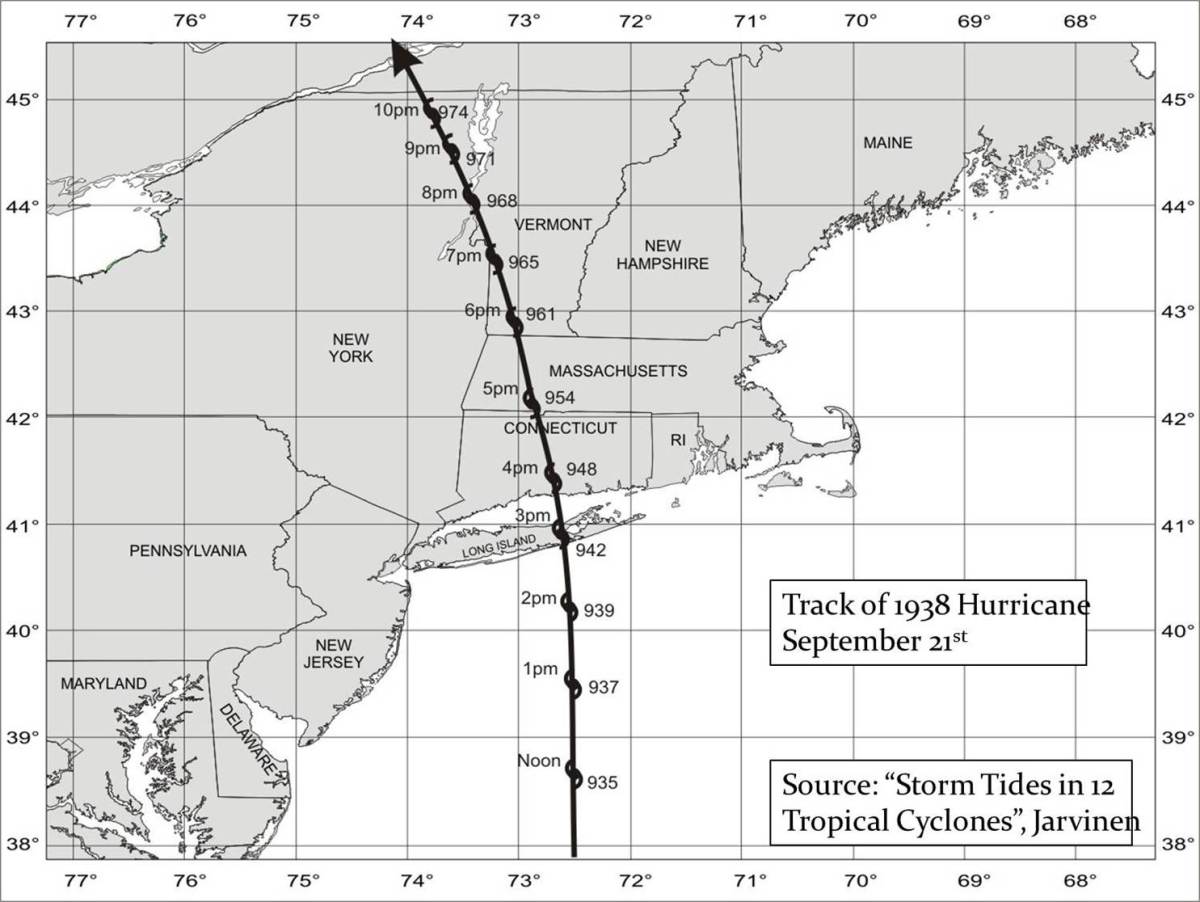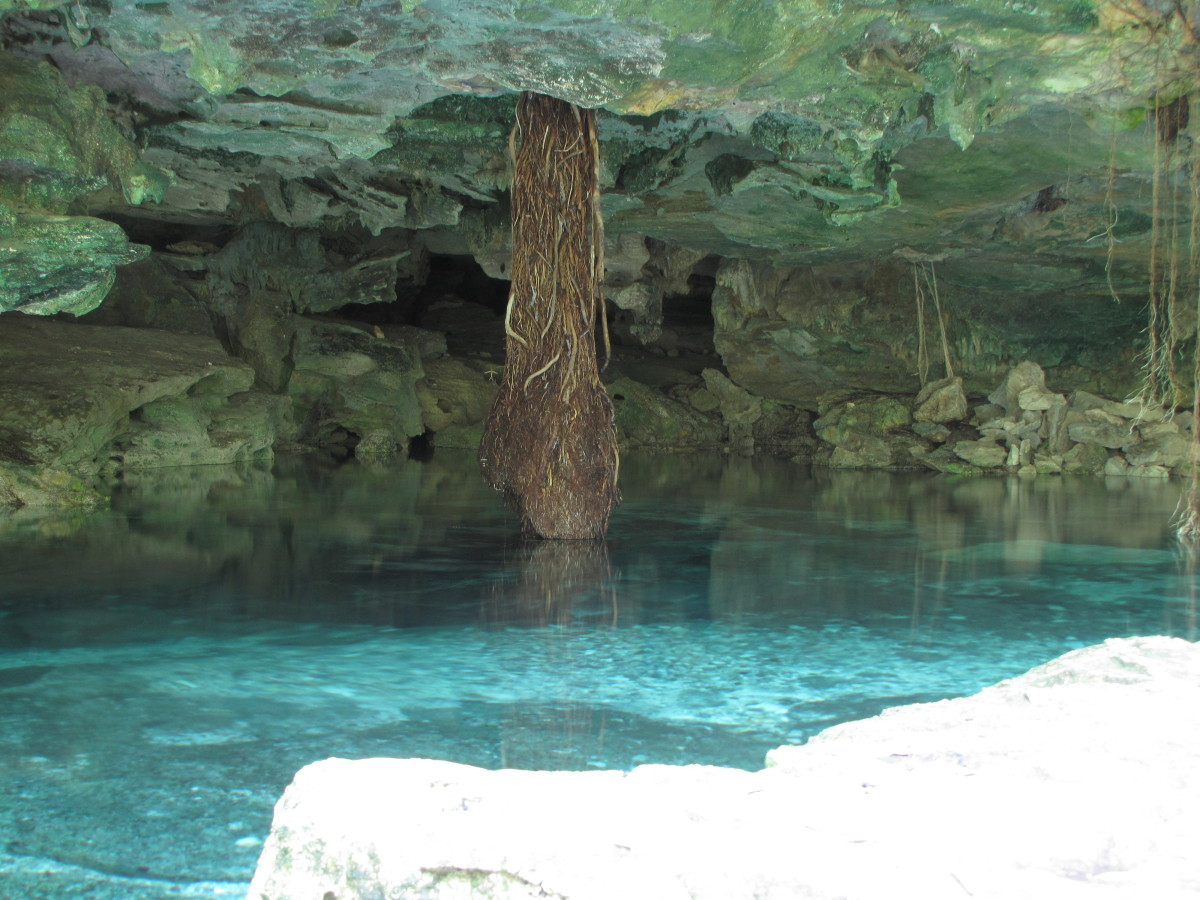Common Sense Disaster Preparedness
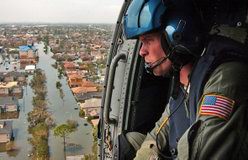
The way things have been going, it has become more and more evident that everyone should not only have a survival plan, but should also be prepared with survival items if the worst-case scenario becomes reality.
We could be faced with food and gas shortages. We could be forced to do without utilities such as electricity and water. We could be struck by a hurricane, earthquake, flood, or other natural disaster. Or God forbid - a pandemic, or a nuclear or other foreign or terrorist attack.
Recent unexpected and shocking experiences with various hurricanes, floods, and tornadoes, have really brought home the sort of messes we can expect. I recently lived through Ice Storm 2009 here in Western Kentucky, which was the area hardest hit, and many were without power or heat for several weeks. Not only did we not have any heat or electricity, but the cell phone towers, land lines, internet service, radio stations, and TV stations, were also knocked out. No stores were open for a few days, and you could not get gas because of the power being out and credit card processors not in service. Needed items were almost impossible to get even after the stores re-opened because of the huge demand for them.
At the very least, we should keep in mind the shaky condition of our economy, and the very real possibility of job, food, and money shortages. Some of us are already affected by the recent down-spiralling of the economy (myself included), and have had to shift into "survival mode"!
What will YOU do when you lose your job and your home?
I strongly urge you to prepare for hard times ahead. This article will help you learn what to expect and how to prepare for disaster conditions. I invite you to follow the links and read the articles about disaster preparedness and survival, so you can learn the information which is essential to prepare yourself and your family for survival in a disaster situation.
These are things we should all know anyway, because we don't ever know what might happen tomorrow! We need to stop being so dependent on "the system" and get "off the grid", so we won't be caught with our pants down when everything falls down in a pile!
Our ancestors knew how to survive and fend for themselves by "living off the land", and we need to relearn these skills. Being dependent on the "system" is proven to be a failed way of living. Don't be a victim of this failed system.
Your basic needs are food, water, shelter, transportation, and communication. Think for a moment: if you were thrown into a woods or a field somewhere...
What would you need to live?
REMEMBER:
FOOD
WATER
SHELTER
TRANSPORTATION
COMMUNICATION
You should have a survival kit at your home in case you plan to survive in place in your home.
You should have a survival kit in a backpack and keep it near you in case you have to get up and go quickly.
And you should have a survival kit in your car or at your office, in case you are confronted with a disaster while you are at work or in your car driving.
If you plan to get in your car and go somewhere besides your own home when it becomes time to shelter, then your car should be already packed and ready to go with the basic survival items. The rest of the things you plan to take with you should be ready to go at a moment's notice.
Pretend you are going on a long vacation and will have nothing except for what you pack and take with you...
Please do not forget to prepare survival kits for your pets! They will be depending on you!
You don't have to spend a whole lot of money on this. Just think about what you would need to survive if you had no electricity, no heat, no water, no gas, no food, and nowhere to buy the things you need. The biggest thing you need to do is adopt a "survival" mentality. You can start to stockpile things you would need little by little.
Some things that I considered myself to be very fortunate to have had during the Ice Storm this past January? An old-fashioned corded telephone, a good supply of blankets, candles, flashlights, batteries, a battery-powered clock radio, kerosene lamps, my Coleman camp stove, ample supplies of both people and pet food, bottled water, barbecue lighter, a kerosene heater, and extra kerosene! I would have been even luckier if I had had a generator! Our cell phone towers, internet, TV stations, and all radio stations except one, were all knocked out along with the electricity, but I could listen to the one radio station with the battery-powered radio for updates on the storm, and I could cook and did not freeze to death.
FOOD AND WATER:
How to purify water for storage:
The accepted standard for using chlorine to kill waterborne viruses is 2 PPM (2 parts of chlorine per 1 million parts of water.) 2 PPM is achieved by adding 8 drops of straight chlorine (common chlorine bleach) to 1 gallon of water. For "good measure" the recommendation is often made to use up to 16 drops per gallon.
Dishes, cups, silverware, utensils
Sharp knives and knife sharpener
Can and bottle openers
Swiss Army Knife
Pots and pans
Coleman Portable Camp Oven
Camp Grill
Coleman 2 Burner Propane Camp Stove
2 burner camp griddle
Large 62 qt or more wheeled cooler
30 or 55 Gallon Water Barrel Package plus 55 Gallon Water Preserver
Water storage camp jug
Water Filtration Bottle
STAPLES:
WATER, flour, sugar, coffee, beans, lentils, dried peas, shortening, salt, pepper, cornmeal, powdered eggs, powdered milk, yeast, baking soda, baking powder, oil, tea, rice, noodles
Meal Kits
Canned goods
Freeze-dried foods
Dehydrated foods
HEALTH, FIRST AID, AND MEDICAL:
Respirators/masks N95/N100 Compliant
Iodine tablets
or:
Emergency Drinking Water Germicidal Tablets
Drops to sterilize water
Respirator Mask
Bleach
Insect Repellent
Emergency First Aid Kit
(First Aid Kits should include: Bird Flu Kits!, Insect Repellent, Bandaids, thermometer, gloves, eye wash, Q-tips, cotton balls, antibiotics if you can get any (pet supply place), sterile dressing pads, ace bandages, self-cling wrap, Hydrogen Peroxide, alcohol, betadine, tape, scissors, lg. needle, catgut, antiseptic, Polysporin or Bacitracin ointment, burn ointment, ointment for poison oak/ivy rash, respirator masks, pain relievers, allergy pills, cold remedy, anti-diarrheal, Maalox, Anbesol, Vitamin C, Multi-Vitamins, energy drinks, any other over the counter remedies you normally use, and any medications you take.)
Note: Respirators should be N95/N100 certified.
SHELTER:
Waterproof matches or Magnesium Fire Starter
Propane Tanks with Century 8' Hose Assembly to Propane Distribution Post
Tent and accessories (tent light and fan, 10" Nail Tent Pegs)
OmegaLight Firefly Portable Power Station with Central Lighting System and 1W Upgrade Kit
Berkey® MP (Multi-Purpose) Solar Charger
Sleeping bags
Coleman Self Inflating Camp Pad and Hand Pump
Vinyl Tarp
Blankets and pillows
Tarps
Waterproof ponchos
Portable Catalytic Heater (up to 8 hours on a 16.4-oz.
propane cylinder) or Portable Outdoor Butane Heater
Solar-Heated Camp Shower
Folding cot and chairs
Candles, lighters, kerosene lamps
Whistle
Compass
Flashlight (Battery-Free Shake Flashlight or Solar Powered Flashlight)
Shovel (Folding Spade), trowel for digging, saw, and axe
Rods and reels, tackle for fishing
Economy Lantern with Battery
COMMUNICATION:
Battery-powered clock radio
Emergency Crank Radio with AM/FM and Weather Alert
GMRS/FRS 2-Way Radios with 18-Mile Range
Self Powered 6-in-1 LED Light & Cell Phone Charger
First Alert Public Alert Weather Radio with S.A.M.E.
Solar Powered Battery Charger
BIO AND HAZARD PROTECTION:
Particulate Masks N95-N100
Gloves
Antimicrobial spray and soap
Antimicrobial hand cleaner
Disinfectant
FINANCIAL:
Have cash, gas, and food. If you have not withdrawn your money, do so NOW! Invest it in whatever can help you survive: paying rent, utilities and other bills, buy gas, there will be shortages - invest in food, water, and other survival supplies. Buy silver or gold if possible.
If the dollar crashes, money may become worthless. The new currency will be food, water, and gasoline.
NETWORKING:
Some people already have plans for survival shelter. If you don't have a plan, make one now! Be in contact with friends and family members. Designate meeting places, who will bring what, etc.
TRANSPORTATION:
Make sure your car is serviced and in working order. Keep extra supplies of gas, oil, antifreeze, whatever your car needs to be without a mechanic for a long time...
KNOWLEDGE:
Survival Books: (Disaster Preparedness, Pandemic Survival, Nuclear Survival, Earthquake and Flood)
Wildcrafting Books: (How to identify wild food plants and how to prepare them for eating)
Other Survival Books: (How to survive in the wild, how to store food and water, how to sterilize water, food dehydration, building shelters, camping knowledge)
Herbal Remedies: (Identifying herbs and their uses and preparation)
Gardening and Farming Books
Animal Husbandry, Hunting, and Fishing Books
PERSONAL AND OTHER SUPPLIES:
Liquid soap
Shampoo, conditioner, brush/comb
Nail clippers
Deodorant
Toothbrush and toothpaste, floss
Towels, washcloths
Warm clothing
Comfortable boots or shoes
Your important papers
PET NEEDS:
3 month supply of your pet's food and treats
First Aid kit: (include your pet's meds, antibiotic ointment (preferably Bacitracin, can be used on both cats or dogs),
pepto-bismol, self-kling wrap, dressing materials, Terramycin ointment, hydogen peroxide, miticide or sweet oil, betadine)
Pet's meds if any
Dog's crate or pet carrier if a cat
Flea Drops and Heartguard supply
Dog grooming equipment, dog brush, shampoo, and nail trimmers if used
Vet records - copy of rabies certificate
Pictures of both you and your pet together, in case your pet gets lost
Be sure your pet has a collar with identification on it (pref.
your cell phone number!)
Vet's phone number
Your pet's toys
Collar and leash, tie-out, dog bed and sweaters if used
Food and water dishes
I highly recommend starting your own vegetable and herb gardens starting NOW! And learn how to preserve food, either by canning or by dehydration. Buy yourself a good food dehydrator and a vacuum sealer so you will have a supply of fruits and vegetables.
I would like to add here that you can get antibiotics at places like Tractor Supply stores where they sell medicines for animals. That they are sold for animals does not matter. They are still the same antibiotics! You can get tetracycline and penicillin for sure, I know. Research these antibiotics so you will know what doses to give according to symptoms and body weight. If you are "out there somewhere" and catch bronchitis, pneumonia or strep throat, you may need this stuff. Learn how to use them NOW!
You can get terramycin ointment for eye infections, granulex spray for deep wounds, gentian blue, sulfur ointments, self-cling wraps, etc at these stores.
No one is going to take care of you. You're going to have to fend for yourself, and to do that, you will need to foresee all possible situations and be prepared for them.
Finally, take action now to prepare for a major immune system assault. Give up that unhealthy lifestyle: stop smoking, drinking soda, eating fried foods, refined sugar and flour, red meat, hydrogenated oils, all of which destroy the immune system.. Learn how to live on raw vegetables and fruits, and fresh vegetable juices made with a juicer. Learn about "alkaline diets" and their benefits over "acidic diet". It is very important to learn how to use herbs as remedies, and also to learn how to use wild plants as food and medicine.
Remember to buy bird flu masks. If a pandemic is announced, supplies will be wiped out within hours. (Get several dozen N95/N100 masks in order to be properly prepared)
Believe it or not, Walmart is one of the better places to find a lot of gear you will need to prepare your survival kit. They have a lot of camping gear at reasonable prices. It will make it easier to get your survival gear together, if you can go to one place to get most of it.
Don't be caught unprepared in an emergency!
(And, P.S.: From past experience: Lay in a good supply of toilet paper!)
Some good books to get:
How to Dry Foods by Deanna DeLong
Canning and Preserving for Dummies by Karen Ward
Stocking Up by Carol Hupping
The Ball Blue Book of Preserving
Complete Guide to Home Canning and Preserving by United States Dept. of Agriculture
The Kerr Home Canning Book by Kerr Glass Mfg. Co.
For more information on Disaster Preparedness, please visit the American Red Cross:
American Red Cross Disaster Preparedness Information
(You can also get Disaster Preparedness Banners for your website and a Financial Planning Guide for Disasters at the Red Cross website)
http://www.redcross.org/services/disaster/0,1082,0_589_,00.html


